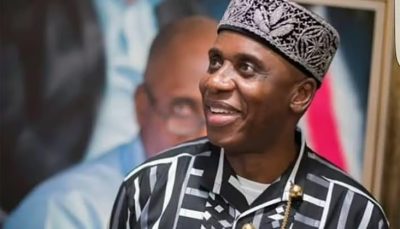
A quiet storm is gathering across Nigeria’s opposition landscape. Weekly meetings, guarded strategy sessions and cross-regional alliances are slowly converging with the objective of unseating President Bola Ahmed Tinubu in the February 2027 election.
Scarred by a bruising defeat in 2023, a loss many blamed on fragmentation, opposition leaders are now racing against time to forge a united front. But with Nigeria’s electoral law requiring mergers or new party formations to be concluded at least one year before the polls, the window to act is fast closing. Eight months, to be exact.
Still, the key questions loom: Which party platform will they adopt? Who will lead the coalition ticket? Should it be a northerner or southerner? How will the new coalition be funded? Most crucially, who can defeat President Tinubu?
Amid this strategic calculus, a select group of political heavyweights are emerging as the architects of what some are calling the “Tinubu must go” movement. While many remain in the shadows, fearing retaliation, others are stepping forward, wielding influence, ambition and deep electoral networks.
“Some northern governors and even former presidents are offering us financial and political support. Some APC members are even part of it, but it is too soon to show their hand,” said a politician working in the coalition.
Here are the 10 most prominent figures shaping the opposition’s 2027 playbook:
1. Atiku Abubakar

The former vice president was the first to present the idea of a coalition of opposition parties. A political titan, Atiku first contested for president in 1993 and is now the oldest in the presidential race. He has contested a record six times and is on the verge of a seventh attempt.
Atiku, who came second in the last two presidential elections, wants to contest for one term in office and is one of the sponsors of the coalition. Atiku is seen as the leader of the North East arm of the coalition.
2. Peter Obi

The former governor of Anambra State is another major force behind the coalition. He came third in the last poll with some 6.1 million voters. Obi enjoys a massive following in the South East where he is from, and is thus representing the region in the coalition.
He is seen as credible and upright by many Nigerians, especially among youths. Obi wants to be president, but he is being offered a vice president position by Atiku, thereby stalling talks.
3. Rotimi Amaechi

A political powerhouse from the oil-rich South South, Amaechi is no stranger to power contests. Having served as governor, minister and Buhari’s campaign chief, he brings vast electoral experience. Estranged from Tinubu after losing the APC ticket in 2022, he now commands the South South bloc and is seen as a top contender for the VP slot if Atiku leads.
4. Nasir El-Rufai

El-Rufai is one of Nigeria’s most controversial politicians. He served as minister of the federal capital in President Olusegun Obasanjo’s cabinet between 2003 and 2007 and later served as governor of Kaduna State from 2015 to 2023.
The former governor was one of the biggest supporters of President Tinubu during the 2023 campaign and even declared war on some of Buhari’s lieutenants who were frustrating Tinubu’s campaign. But relations between El-Rufai and Tinubu broke down soon after when Tinubu reneged on his promise to appoint him as energy minister ostensibly because of a damning security report. The Tinubu administration also began arresting and prosecuting some of El-Rufai’s allies, thereby infuriating him.
El-Rufai dumped the APC earlier in the year to join the Social Democratic Party. He now handles the North West operations of the coalition.
5. David Mark

Nigeria’s longest-serving Senate President and a respected military figure, Mark, represents the North Central region within the coalition. His longstanding ties to former military ruler Ibrahim Babangida give him quiet but influential backing. He chairs one of the ad hoc committees guiding the merger talks.
6. Rauf Aregbesola

In an alternate universe, Rauf Aregbesola would have been President Tinubu’s chief of staff or at least a principal member of his cabinet. A long-time Tinubu loyalist turned fierce opponent, he once managed the president’s gubernatorial campaign and served in his cabinet.
But their relationship fractured after Tinubu’s cousin, Gboyega Oyetola, succeeded Aregbesola as Osun governor and reversed many of his policies. Aregbesola now spearheads the coalition’s push in the South West.
7. Babachir Lawal

The former Secretary to the Government of the Federation was once a close Tinubu confidant, even helping to secure his nomination form in 2022. But Lawal, a northern Christian, broke ranks over Tinubu’s controversial Muslim-Muslim ticket and has since become a vocal critic of the administration.
8. Salihu Lukman

A former APC national vice chairman, Lukman, was an outspoken critic even within his own party. After being forced out in 2024, he joined the opposition and now serves as the coalition’s secretary and chief strategist, crafting messaging and operational blueprints.
9. Aminu Tambuwal

Tambuwal is a former Speaker of the House of Representatives and also a former governor of Sokoto State in the North West.
Currently serving in the Senate as a member of the Peoples Democratic Party (PDP), Tambuwal is being considered as a possible vice-presidential candidate if Obi emerges as the standard bearer.
10. Abubakar Malami

Until 2023, Malami was one of the most powerful men in Nigeria. Not only did he serve in President Buhari’s cabinet for eight years as attorney-general, but he was also a member of a tiny albeit powerful cabal that made decisions on behalf of the government. Malami is now a member of the coalition and provides legal counsel on the way forward.
(The Africa Report)

